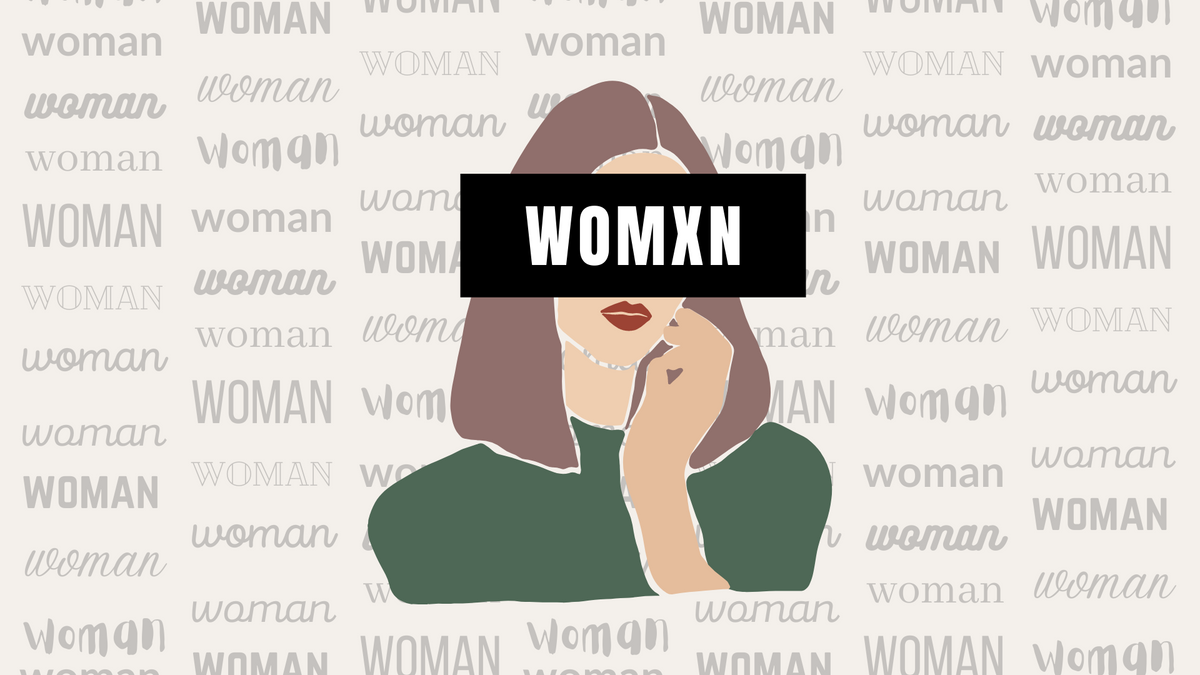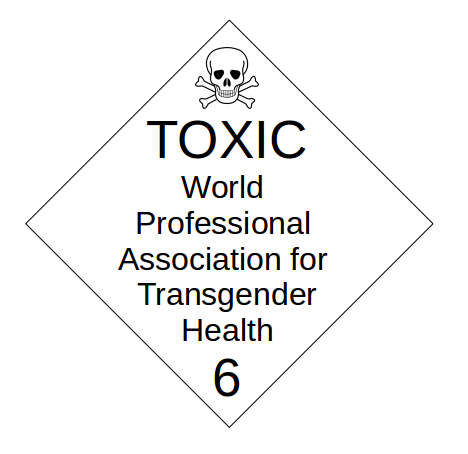The "Womxn" Debate Shows Who Really Has Power
Feminists long opposed the alternate "inclusive" spelling, but it was male objections that finally caught the attention of mainstream institutions

Several organizations and groups, preparing to celebrate International Women’s Day on March 8th and Women’s History Month, found themselves struggling to name those they claim to be celebrating. Since 2018, many organizations have chosen to use the newly-invented word "womxn" to be inclusive to males who identify as women. Feminists opposed this since it started, but their complaints fell on deaf ears. This year, however, when trans activists made the claim that "womxn" is not inclusive of males who identify as women, companies like Twitch changed their tune, suddenly apologizing and returning to using "women."
Since March 1st, organizations trying to show their support to women’s human rights are posting their reminders daily, many of them still using “womxn.” Unfortunately, many actual women feel they can’t count on most of these groups or organizations for real support. These posts don’t look sincere and genuine. Instead, they are an attempt to look progressive and “woke,” while, at the same time, they dehumanize women.
The proof about this claim? In the past few years, NGOs, organizations, and brands were instructed - many by training, others by personal requests on social media, quickly granted - to use the concoction “womxn,” instead of the word “women,” to refer to adult human females. The reason “womxn” was being used, many of the groups claimed, was to include (or, some cases, prioritize) males who identify as women.
It’s not progressive to class ‘POC women’ (hate that acronym) as different to white women.
— Jaimi Shrive (@Jaimi_Shrive) July 23, 2020
Its not woke, it’s racism. pic.twitter.com/l3xoVutWGr
The first instances of the use of “womxn” seemed to have appeared in the last decade. However, there is a long history of feminists experimenting with the spelling of the word “woman” as a political statement. In the 70's, for example, the female-only Michigan Womyn’s Music Festival used the alternate spelling of “womyn” to cut “man” and “men” out of the word, a symbolic nod to the spirit of female separatism put forth by the festival.
The words women/womyn choose to describe themselves, though, have long been criticized by men. Trans activists decried the word “womyn” and the associated spaces as exclusionary for not including men who identify as women.
In April 2016, a Washington Post Contributor wrote:
“The word ‘woman’ has evolved from its initial spelling of ‘wifmann’, meaning ‘female human.’ What some may notice, is that the word ‘man’ then simply meant ‘human,’ implying that wifmann were an extension of men.”
A Metro piece which cited this goes on to say:
“However, ‘womyn’ has a reputation of being used by the cisgender, white feminist movement, so ‘womxn’ was introduced as a way of making the word more inclusive, covering people of colour, non-binary and trans people.”
Queer theorists who liked the idea of an alternative political spelling of “woman,” but couldn't get on board with “womyn” (for its politics), needed another term. “Womxn” was born.
In the late 2010s, student groups at universities were using “womxn” as a more “inclusive” term. Such groups included the King’s College London Womxn in Physics Society (founded in 2015, which claims to welcome “self-identifying womxn and non-binary individuals”), and the University of Iowa’s Womxn of Colour Network, which states on its website:
“Womxn removes the sequences of m-a-n and/or m-e-n from the term ‘woman/in’ that sheds light on the prejudice, discrimination, and institutional barriers womxn have faced, but to also show that womxn are not a subcategory of men, while providing active resistance to transphobia to include transwomen, trans*femme, and other gender non-conforming womxn.”
In 2018, an op-ed was published in Harvard’s student paper, The Crimson, which described “womxn” as “a rejection of the simplicity of ‘women,’ an embrace of the multiplicity of non-male identity and a way we screw with gender.”
Even large organizations, like Greenpeace and TedX got on board with the term.
However, radical feminists remained in ardent opposition to the term “womxn” since its adoption, citing the word’s antifeminist political history as a replacement of “womyn” and the inherent misogyny of including men in the class of “women.”
In 2018, for example, feminist campaigner Julie Bindel wrote for The Telegraph that “womxn” was offensive for “telling women how we should define ourselves.” She also pointed out that men have never been called “mxn” or faced similar attacks on their language such as being called “prostate-havers” or “menstruators.”
“Today's total co-opting of the language to describe women and our biology gives the impression that natal females are somehow privileged over men who choose to define as such. But women have always been defined in relation to men.”
Organizations, of course, ignored the complaints of actual feminists. It was, after all, just women/womyn/menstruators/cervix-havers — no one of consequence.
But all the diversity training and the championing awards that institutions get, all the money and time spent on them, could not foresee the unpredictability of people’s minds. Between March 2020 and March 2021, trans activist groups and personalities, like YouTuber ContraPoints (Natalie Wynn), changed course and decided that “womxn” is a slur used against males who identify as women.
This was happening behind curtains, while women’s rights activists lobbied to push back against several attempts to undermine women’s material reality, like the Mother Bill in the UK, which included language like “pregnant people” and “birthing parents."
After complaints like Wynn's, people started listening. Streaming platform Twitch, for example, came in line with the new rule, tweeting: “While we originally wanted to use a word that acknowledges the shortcoming of gender-binary language, after hearing directly from you, including members of the LGBTQIA+ community on Twitch, we will be using the spelling 'women' moving forward.”
While we originally wanted to use a word that acknowledges the shortcoming of gender-binary language, after hearing directly from you, including members of the LGBTQIA+ community on Twitch, we will be using the spelling “women” moving forward.
— Twitch (@Twitch) March 2, 2021
Even though many other groups, companies and organizations are not yet on board with the new trend, the incident caused a stir. Hundreds of women’s rights activists came forward to say that they have been opposed to “womxn” for years now, and their comments can be seen in nearly every post on social media platforms where “womxn” was used in the previous years.
When trans activists were pushing for the replacement of the word women for “womxn,” they would justify their complaints by saying that the women who opposed to use “womxn” were “TERFs” - Trans Exclusionary Radical Feminists.
But in March 2021, they changed their narrative. To justify the change, trans activists began to claim that “womxn” was created by radical or gender critical feminists in the first place. They argued that the word was discriminatory because the women they call “TERFs” were the creators of the term, not them, in a clear attempt to blame women and dominate the discourse.
Again, women’s rights activists protested firmly that they had always been opposed to using “womxn” instead of women, while the accusations from trans activists poured in. But these seemed to have been, one more time, unfounded accusations. Upon finding no proof that “womxn” was created by women’s rights activists who understand the importance of biological sex to determine womanhood, trans activists started editing Wikipedia pages hurriedly to fit history to their new narrative. Using anonymous accounts, their disingenuous cleanup job was highlighted by Dan Fisher.
One edited bit in the Wikipedia article on “womxn” originally said, until March 1st, 2021, that “womxn” was an “Alternative term for women, to explicitly include transgender women and women of color”. Following the March 2021 edits, it read, “Alternative term for women, to explicitly exclude transgender women by inferring they’re not actually women” (emphasis mine).
The moment an anonymous user attempted to rewrite history on Wikipedia by inverting the original intent of the term 'womxn'. The fact that this was corrected will not stop the hundreds of twitter users still spreading the exact opposite of the truth. pic.twitter.com/IaOTJwkhTY
— Dan Fisher (@Fisher_Download) March 2, 2021
Another edited section now implies that the word “women” was only created in 2010.
Insiders participating in Wikipedia Editing groups discovered other attempts to rewrite reality to fit the trans narrative by completely deleting topics or pages about feminists like Janice Raymond and Sheila Jeffreys and adding smearing and defamation of them.
Institutions and brands used the term “womxn” in an attempt to appeal to males who identify as women over the vocal protests of actual women. Now that trans activists are claiming they don’t want “womxn” anymore, suddenly, corporations are falling in line. But these organizations still have big questions to answer. Why are women never listened to? Why did these institutions refuse to drop “womxn” when women specifically told them this was dehumanizing language? And why are some institutions now claiming that they should not use “womxn” anymore only after trans activists started claiming they are opposed to it?
The entire debacle reveals one thing for sure: the group with the power to make change, to be listened to, to influence power (aka “privilege”), is certainly not the womyn-born-womyn.
Do you want to bring the "gender madness" to an end? Help us write about it! 4W is able to pay our all-female staff and writers thanks to the generous support of our paid monthly subscribers.
Enter your email below to sign in or become a 4W member and join the conversation.
(Already did this? Try refreshing the page!)




Comments